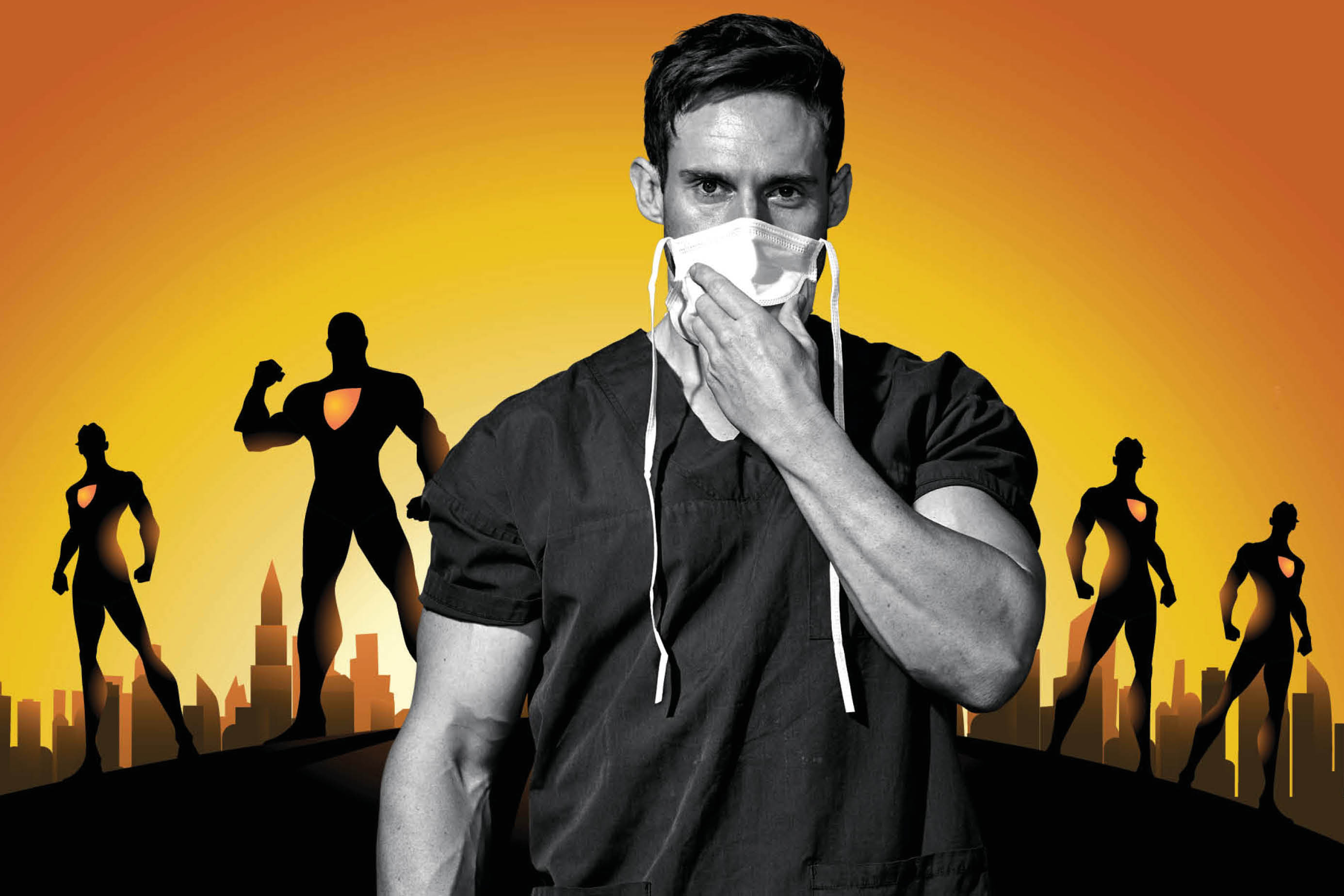
COVID-19 has decimated healthcare systems and economies across the globe, claiming lives and destroying livelihoods. Social distancing and forced lockdown have changed the way all of us live, work and play. But amid the ‘unprecedented’ turmoil, many people are finding ways to be positive, helping others less fortunate, inspiring those who feel helpless and in the case of healthcare workers – like our cover guy, Dr Kieran Kennedy – ploughing on and doing their jobs under the most trying of circumstances. Here, in their own words, some of those who have stepped up in the short time since COVID-19 reshaped our lives reveal what drove them to find the best in themselves.
Dr Kieran Kennedy is a neuropsychiatry resident in Melbourne’s public hospital system. As a mental health specialist he works across many departments, including emergency. Here he details the psychological toll COVID-19 is having on patients and healthcare workers and the importance of staying active
“Right now, the whole landscape of the healthcare system has changed, almost in an instant. It feels like we’re in the calm before the storm, preparing for battle. We’re hunkering down and all these plans are being made. I think that’s where Australia and New Zealand are lucky in the sense that social distancing and lockdown have done what we hoped they would in terms of stemming some of the flow. Seeing what’s happened to Italy, the UK and America is scary.
As a doctor, imagining what it would be like to have that many patients presenting to hospital and not having beds or equipment for them would just be such a gut wrenching situation. As doctors, we’re used to being in control and feeling like we can help. To think that there might be a scenario where that can’t happen is just surreal. I don’t mean to sound overly dramatic, but to put yourself on the line, to do what you’re trained to do, knowing that you could get sick, is difficult. I think healthcare workers, doctors and nurses are very aware of some of those cases overseas – that aren’t that infrequent, either – of young, fit, healthy doctors passing away. That really is quite anxiety provoking.
I saw a patient a week or so ago and there wasn’t any indication at the time that I needed to be in protective gear. When I’m doing an assessment of a patient, you’re with that person for quite a long time sitting reasonably close together. I found out afterward that the person had some family connection to someone that may have been positive, which meant that I had to get tested. I was like, ‘Oh, God. I think I do have a little bit of a sore throat’. It was quite confronting for me. I was thinking, ‘I might have it now’.
Acknowledging the mental side of things is really important. Change, stress and any kind of impact on our routines is going to have a massive flow-on effect to our mental health. Routines are things we use to keep ourselves feeling good mentally and physically. But they also give us a sense of who we are as well. We kind of are our routines. I’m in the same boat as a lot of guys who are like, ‘What do you mean the gym’s closed?’ That’s a really important part of my week in terms of stress management. I straddled my ironing board on top of two bean bags as a makeshift bench to do some flys. It sounds crazy but I know for myself how important exercise is for me. And for everyone, particularly in a situation like the one we currently face, the benefits to our mental health can’t be overstated.”
For more of our coverage of COVID-19 heroes pick up a copy of Men’s Health in store or online.













